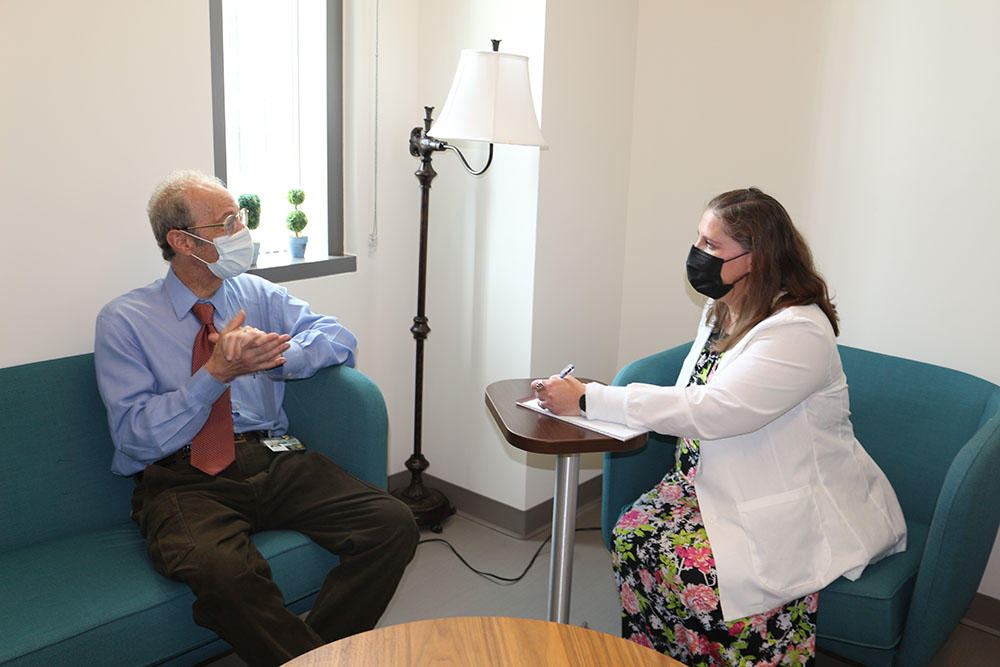In This Story
Department of Nutrition and Food Studies opens clinic with expansion plans to include student practice with the dietitian program.
College of Health and Human Services faculty are committed to creating experiential learning opportunities for students that meet the public health needs of the community. Most recently, Nutrition and Food Studies (NFS) Department Chair Larry Cheskin, an MD, started a once-a-week nutrition clinic at the College’s Population Health Center.
The opening of the Nutrition Clinic is timely as the NFS Department recently received accreditation from the Accreditation Council for Education in Nutrition and Dietetics (ACEND) and its first cohort of students begin in just a few week. The Master of Nutrition in Dietetics program is directed by Assistant Professor Sapna Batheja, PhD, RDN, LDN, and follows the Future of Education model for preparing Registered Dietitians. To ensure career-ready graduates, the ACEND Future Education Model integrates coursework and an internship into a two-year master’s program. The Clinic will be an additional source of hands-on learning for Mason dietetics students.
“As a university, we have the classrooms to teach students, and at Mason, we have this state-of-the-art medical facility, so we want to train students here too. The advantage of having our Mason nutrition clinic is that it is in the same place that they will receive their didactic training and it’s with the faculty who will teach their courses,” Cheskin said. “Plus, we’re able to better meet the community needs at Mason and underserved people in neighboring communities.”

Similar to the behavioral health clinic that opened in the Population Health Center earlier in 2022, the nutrition clinic will train students in the Dietetics program under the direct supervision of faculty who are Registered Dietitians or MDs. Clinical rotations for dietetic students will start their second year in the program. Also, like the behavioral health clinic, the nutrition clinic is a sliding scale model, which means the cost is income-based and affordable for those who have limited resources.
The clinic will help patients with obesity, high blood pressure, diabetes, and any health effect that diet can improve. Initially, patients will be referred by the School of Nursing’s Mason and Partners (MAP) Clinics, interprofessional clinics that serve the uninsured and refugee community within Prince William and Fairfax counties in Northern Virginia. The MAP Clinics also provide opportunities for Mason students to receive firsthand, guided experience in giving interprofessional care to patients and responding to community-based needs. Cheskin aims to grow the program to accept patients from other referrals as well.
Earlier this year, Registered Dietitian Allison McKay was brought into the department as the department manager in anticipation of the clinic. To begin, Cheskin and McKay will treat patients and the number of licensed practitioners will increase with additional funding and when students are able to join the team. Currently, funding for the Clinic is coming from the College, with opportunities for philanthropic support.
In the future, Cheskin also intends to expand telemedicine capabilities at the clinic. The Population Health Center is equipped to support telemedicine and, after their initial in-person visit, he could see patients appreciating the option of a virtual visit.
Learn more about Mason's Master of Nutrition in Dietetics here.
